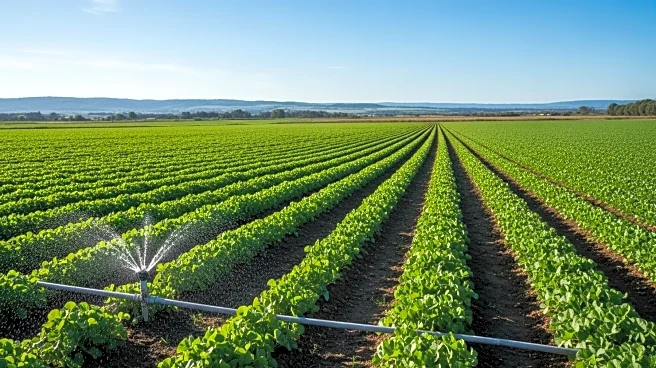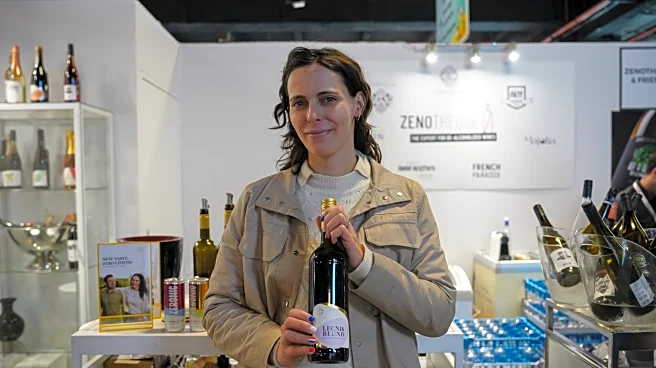What's Happening?
Nestlé is focusing on regenerative food systems as a key component of its sustainability strategy, aiming to source 50% of its ingredients from regenerative sources by 2030. This initiative is part of Nestlé's broader ambition to achieve net zero emissions by 2050. Emma Keller, Head of Sustainability for UK and Ireland at Nestlé, emphasizes the importance of regenerative practices in reducing environmental impact and promoting sustainable agriculture. The company is investing in innovative farming techniques and partnerships to support this transition.
Why It's Important?
Nestlé's commitment to regenerative food systems represents a significant shift towards sustainable agriculture, which could have far-reaching implications for the food industry. By prioritizing regenerative practices, Nestlé aims to enhance soil health, biodiversity, and carbon sequestration, contributing to global efforts to combat climate change. This approach not only supports environmental sustainability but also aligns with consumer demand for ethically sourced products. Nestlé's initiative may influence other companies to adopt similar practices, driving industry-wide change.











